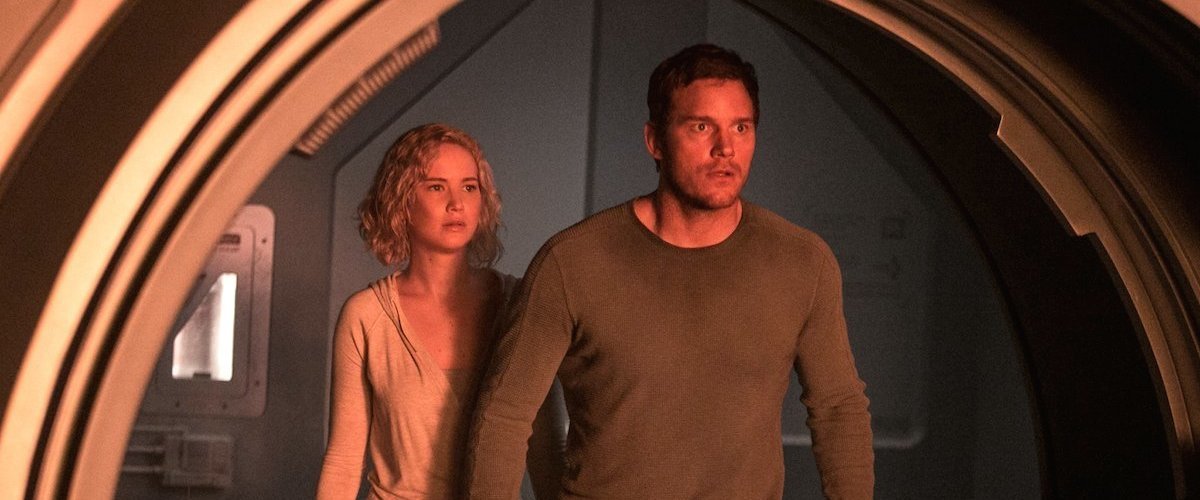‘Passengers’ released in the year 2016 bringing together two of the most loved stars of the industry. Naturally, their first movie together got people excited and attaching high expectations from the project. As it turns out, the film indeed succeeded at the box office, making almost thrice its net budget, but still ending up behind ‘La La Land’. Producers went in with the clear intention to take over the box office and make themselves a fortune. But eventually, it wasn’t to be. There were a lot of reasons that the film failed to be the gigantic hit the producers hoped it would be. Over-reliance on its leads, a weak narrative, and less focus on character development are some. But even though the movie performed below expectations, it had certain unsolved mysteries which we’ll unravel here.
The Plot
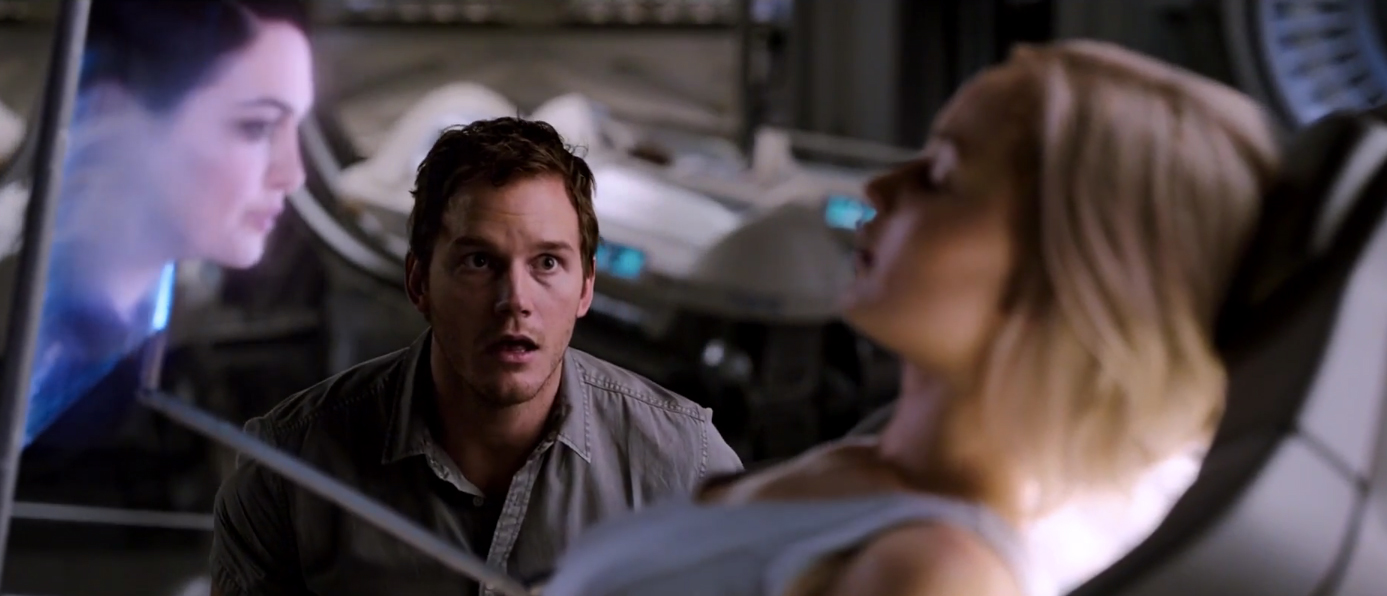
Okay. So the plot of the movie is set entirely aboard a spaceship which is set on its odyssey to a colony planet. On the journey, all human inhabitants are asleep, as the time for the journey outlives them. Inadvertently, Jim, an occupier on the sip, is awoken and finds himself alone and confused. After the initial skepticism and merrymaking, whereby he lives his life in a way every human being would want to, Aristotle’s political ideology fails him. “Man is a social animal”. Jim soon begins feeling lonely and in need of companionship. He proceeds to browse through his “options” and zeroes in on Aurora, a seemingly beautiful woman, who’s asleep and would have no way knowing Jim was the one who deliberately woke her up.
He proceeds to make her incubator malfunction and open much, much before time. As she wakes up, Jim pretends he doesn’t know what has happened or how it came to be. Aurora unassumingly believes Jim’s narrative and the two begin spending time together. In an almost copy of ‘Shining’s bartender, Arthur dons the screen as the only semblance of human life apart from the two leads on the spaceship. Arthur is a humanoid, half human, half android, and serves as the bartender, which bears a striking resemblance to the one in ‘The Shining’. As Jim and Aurora spend more and more time together, they grow close and eventually fall in love. All is well and great until the first anniversary of their time on the ship. Jim is ecstatic and prepares his proposal to ask Aurora to marry him. While waiting for the surprise, Aurora and Arthur engage in a casual chat, where the inevitable happens and Aurora learns of Jim’s betrayal. She measures this act as tantamount to murder and proceeds to physically account for Jim and separate. The two are brought together by another malfunction on the ship, which awakens one of the crew members, Captain Gus Mancuso, the chief deck officer.
Gus reveals to the pair that no one was supposed to wake up before the 120 years it took the spaceship to reach the colony planet, including the crew members. Going through the systems, Gus discovers some grave concerns about the ship’s well-being. The concerns transform into learned critical faults in the system which would consume the life of everyone on board unless rectified. Before dying, Gus gives his access card to the pair to repair the ship and save the lives of everyone. Jim’s aberrated waking up is accounted for as the pair discovers major breaches in the hull from a meteor collision from about two years ago, the same time Jim woke up. As happens in movies of these kinds, some technical issue is only resolvable manually and one of the characters has to do it, in the process risking their life. Jim volunteers, despite Aurora’s protests and ventures ahead, to heroically save the life of everyone on board. As Aurora retrieves the lifeless body of Jim from outer space, the ship stabilizes. She puts him in the Autodoc and begins the process of resuscitation. After protracted and frenetic efforts, Aurora successfully brings Jim back from the dead and the two reunite. In their brief encounter with the Autodoc, the two discover that the same can also serve as a makeshift hibernation pod, but can only accommodate one person.
The narrative jumps to eighty-eight years later, as the crew and other passengers wake up according to schedule. They discover a house amidst sprawling flora and fauna along with a book that is seemingly important. That turns out to be Aurora’s, which reveals the two stayed together for the rest of their lives, not choosing to separate and let the other one die.
The Ending
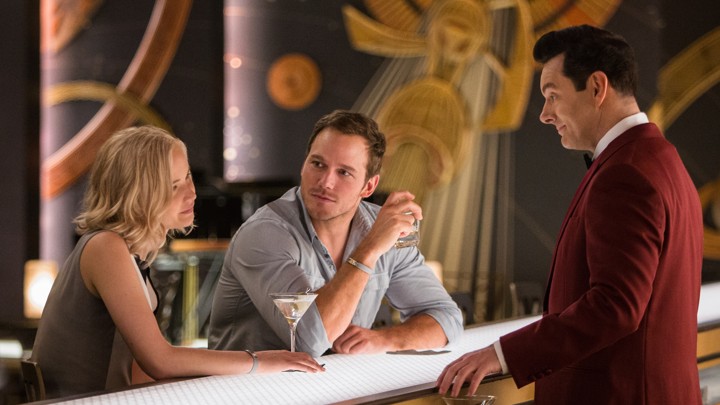
The ending of ‘Passengers’ didn’t really excite or intrigue. The rather mundane ending saw the two characters chose love over life and opted to die together rather than living alone. But the ending itself didn’t set any major fireworks ablaze. It was the mid part and the very question of how Jim was woken up from his sleep that really rubbed our fantasy.
There are some theories about how Jim woke up randomly instead of other passengers. While some just reject it as something arbitrary and the fact that Jim was played by Chris Pratt (woah), others have a more detailed hypothesis as to how Jim was carefully selected by the Avalon to save it and the other passengers from destruction. Jim Preston is a mechanic by profession and a dead one too, considering he got a discounted ticket for Homestead II as well. His proficiency and job profile matched the description to avert the crisis that heightened in the climax. Remember how the ship met with a meteor collision almost a year prior to Jim waking up? What if the system of the Avalon chose to wake up Jim specifically for this reason? Just think about it. This theory does seem far-fetched but is supported by pretty starking revelations.
During the time Preston is filmed having fun on the ship alone, it is brought to our attention that there’s no internet on the ship. So how was Jim able to access Aurora’s data beforehand? How did he know what books she had written and what kind of food she likes? The ship stored large amounts of data on each passenger to carefully depict how they were chosen for a prestigious spot on it. Every person has a role to play in sustaining life on the ship, therefore every person is equally important. This utopian concept remains hidden throughout the movie, and something which the makers should have taken heed of. Sending a signal to earth would have taken thousands of years with no internet and therefore it became imperative for the ship to do something about it. There were just three people who woke from their scheduled sleep in the pods. Jim, Aurora, and Gus. While the second was woken up deliberately by Jim, the third person, Gus, was also woken up by the ship. Now, why is that? As it turns out, the answer to that isn’t just randomly. Gus, as the captain of the ship, had access to every part of the system, which other passengers didn’t have. Remember there were some restricted areas on the ship which Aurora and Jim couldn’t access on their own. And if they wouldn’t have been able to do it, the ship would have been destroyed and with it possibly the only remaining form of human life. This strong evidence suggests a larger play at the fore as has been made out.
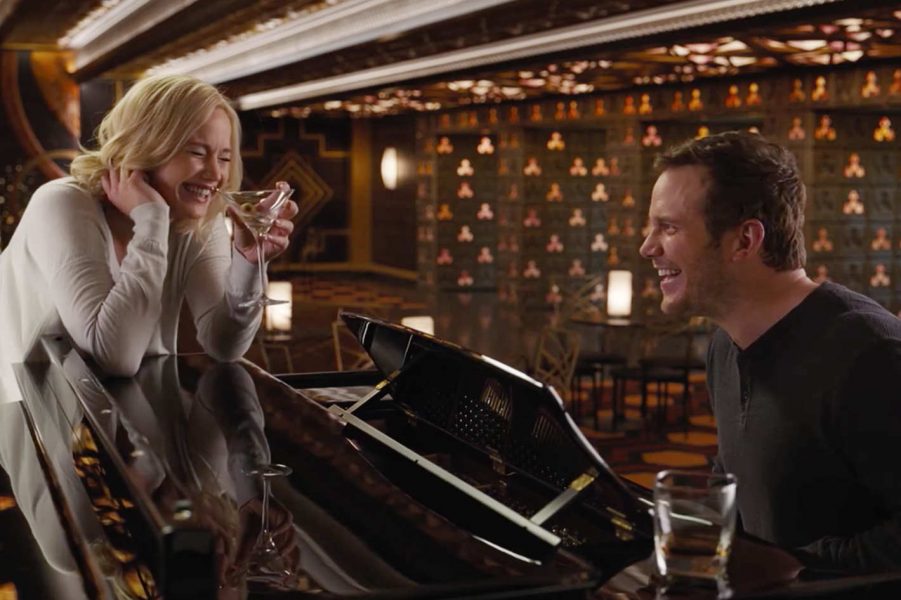
The ending of the movie reaffirmed the theme that sparked the plot in the film before it. The little moments, like this one, that the characters shared, were the very soul of the movie and gave it a lot of character. Chris Pratt anchored the movie in the first half with his crazy antics and hilarious daily-routine. Aurora’s character was possibly thrown into the mix to solidify an age long notion about male and female companionship. That, though, myopic in thought, is the only reason why Jim deliberately woke Aurora up. Without the use or interference of human faculty, the ship would have seen two people wake up: Jim and Gus. And they certainly would have had a brief stint as the latter almost instantly died as he woke up. This scenario also takes up the bigger debate on technology versus human beings. The only reason why human reason loses objectivity and embraces whimsical subjectivity is the presence of emotions. Machines don’t let themselves drive through emotions and feelings., if that would have been the case here, Avalon wouldn’t have survived and would have plummeted to death. Without human craft, machines and technology are really worthless. So in a way, they share a symbiotic relationship which allows both of them to sustain and flourish.
Remember ‘Alien’? The harrowing sci-fi really set the benchmark for other movies of such nature to emulate. The interface between humans and technology was explored through the use of artificial technology, supposedly. Order #937 ensured the safety of the ship and the people on it and no one knew about it other than the scientist. Is that what happened here? Quite possibly so. But there’s no way of knowing that. And that remains a mystery that will never be solved. The ending also brought with it a legacy of Aurora and Jim that can be carried forward in a potential sequel, though, the makers haven’t effectuated it in their intentions yet. The visuals that we saw at the end are indicative of the fact that both Jim and Aurora lived a happy life. With no sign of them on the ship, it is assumed the two died in the course of their relationship. Their only souvenir of life is the love they shared and the diary that Aurora leaves behind. Apart from that, we are shown that the pair together has raised a habitat, unusually enough, to breed trees and birds and plants. They’ve given the remaining passengers of Avalon the concept of a new civilization that they must take forwards to Homestead II. The on-lookers are in awe of this revelation and can’t really seem to get their heads around this new discovery on the ship. With the sun shining brightly through the lush, verdant habitat, the screen goes black with a muffled yearning for another part.
Change of Perspective- An Unused Tool
This section is a bit different from what we usually do. Films are always told through a point of view, one that is carried forward until the end, sometimes changing hands in-between. But generally, the perspective remains intact, making good movies into great. For instance, we see ‘Fight Club’ through the eyes of the narrator, the sole reason we are able to meet his split personality, Tyler Durden. Durden doesn’t exist in real life. He’s a mere apparition that the narrator has drawn in his mind, his idea of a perfect himself; confident, handsome, and an alpha male. Therefore, the point of view plays an important role in the functioning of filmmaking.
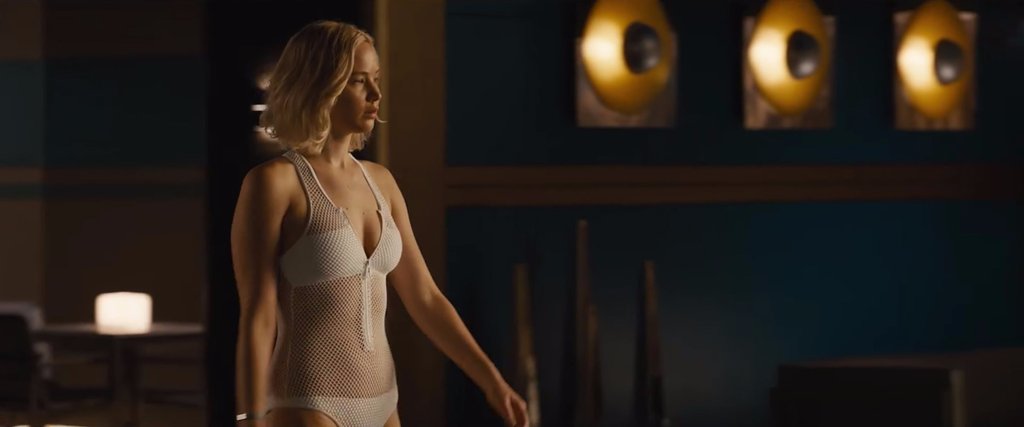
I keep thinking about how the story could have turned out to be if it would have been told from the point of view of Aurora, played by Lawrence. A little tweak in the storyline could have made a world of difference, and possibly, ‘Passengers’ a hallmark of modern storytelling. Imagine if the film would have started with Aurora waking up. She looks around, confused, frantically shifting gears to become a part of normalcy. In her search, she stumbles upon the character of Jim. Try to think what Aurora would have when she would have seen a strange man, lingering in the shadows, silently keeping an eye on her. Just them on the ship, awake more than half a century early than they should have. This would have laced the screenplay with an acute tension that could have been a game changer. The endearing and charming Jim Preston would have seemed creepy and devoid of any permanence of decency. The element of trust and familiarity with Jim would have been at a loss, making the viewer think twice before testing the waters. The meaning of locations would have changed and the whole dynamic between the two leads would have been so different. That would have also saved the middle act of the movie, the revelation. This would have given that moment an emotional strength and credibility that would have been hard to match otherwise. The viewer would have had to keep guessing how did Aurora wake up, and moreover, how did Jim? Just these little changes could have added such a great quality to the film. Because the performances are sublime, the chemistry they share is electrifying, and the production design is absolutely gorgeous.

This idea of exploring ‘Passengers’ in this rearranged format was first talked by two of my favorites critics online, Doug Walker and Chris Stuckmann. Their analyses of this tweak in the system really works out wonders and would have certainly added a lot of depth and intrigue to the film. In the end, even though the film is largely predictable and relies heavily on the star-power of its leads, ‘Passengers’ offers enough to gauge your attention and leave you a satisfied viewer.
Read More in Explainers: Under the Skin | Get Out | Interstellar

